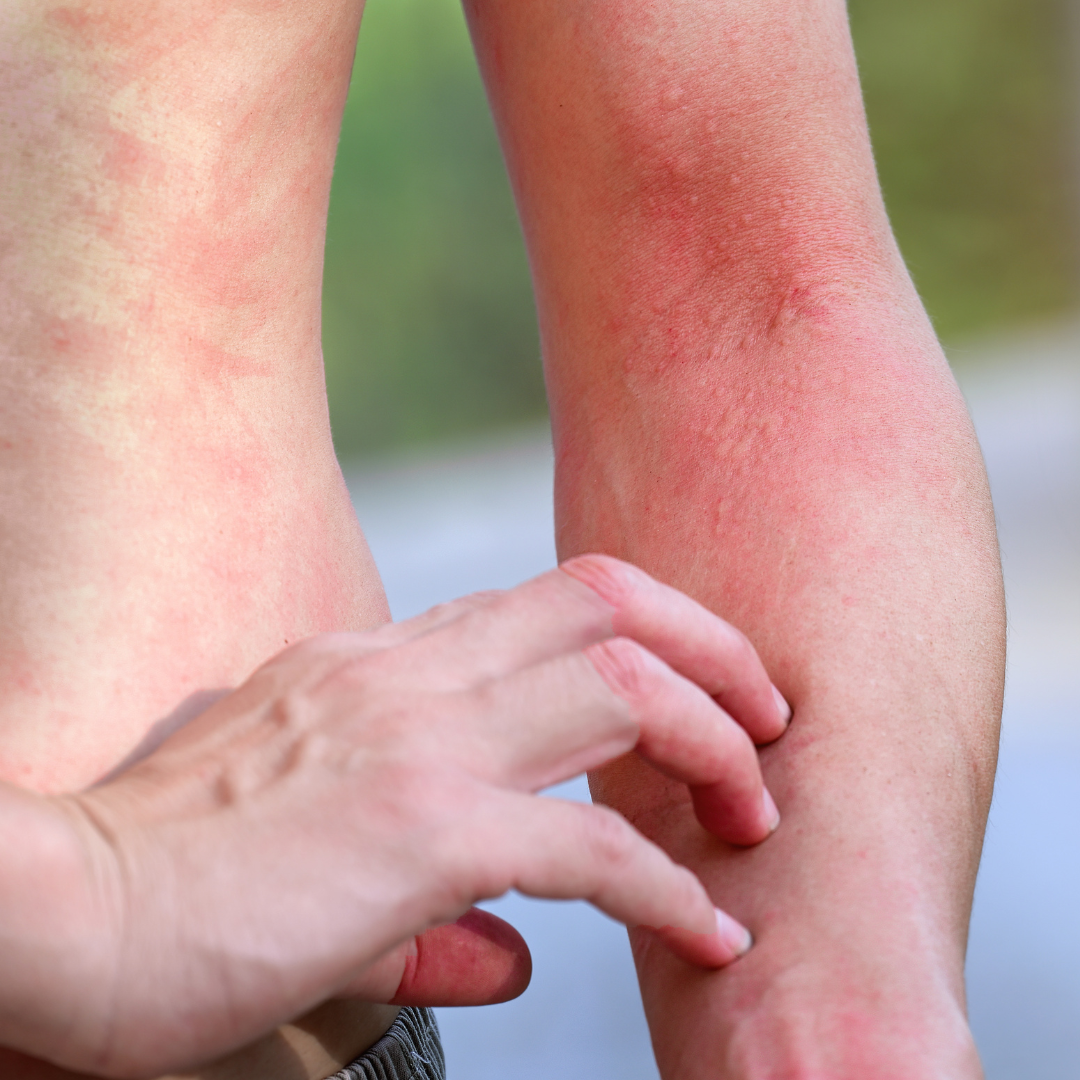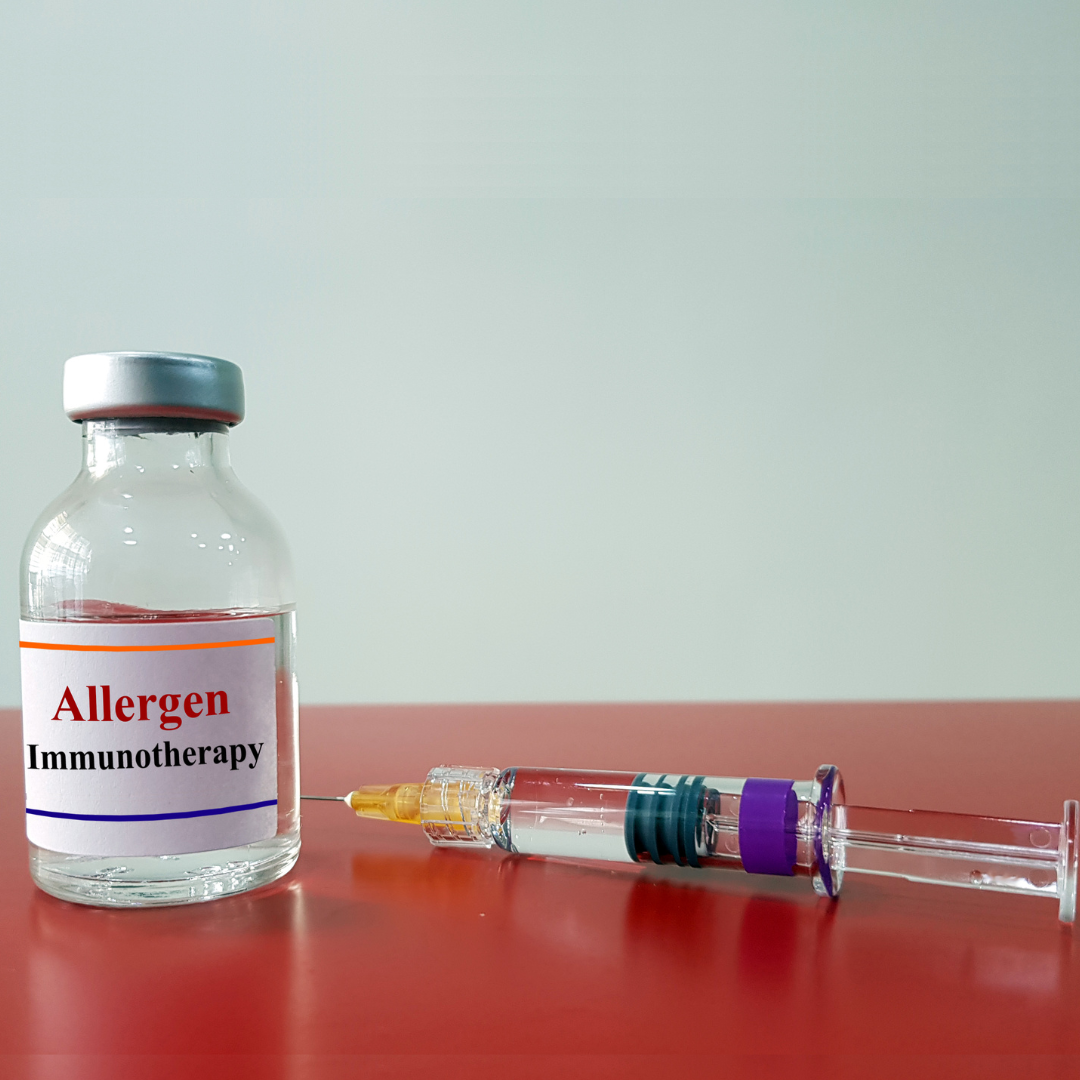Allergy Testing and Allergy Shots in DFW
If you are tired of the year-round sniffles, sneezes, and itchy, watery eyes, we can help. Allergy testing can identify what triggers your immune system to cause those annoying symptoms and reactions.
Even if your allergies are sporadic or only happen in certain areas or during specific times of the year, needle-free allergy testing can pinpoint the cause, making your allergens easier to avoid or prepare for.
Once we’ve identified what you are allergic to, we can form a treatment plan, including allergy shots, to help you feel better and sniffle-free.
What Does Allergy Testing Test For?

Our allergy skin tests can identify what causes your immune system to overreact by exposing your skin to different substances. Once exposed, a positive reaction will show mild swelling, redness, or hives.
The common environmental allergens we test for include:
- Pollens from many different grasses, trees, and weeds
- Molds
- Dust mites
- Pet dander
If you believe you may be allergic to foods or medications, please let us know. Although we primarily test for environmental allergens, we can perform blood tests to check for other allergies.
Even though avoiding all allergens may not be possible, knowing what does and does not trigger your immune response helps you make more informed decisions. If you’re allergic to multiple pollens that are more common in the fall, that may not be the best time to take a camping trip. If you’re considering getting a new pet, allergy testing can help you avoid getting one that will make you sick.

Do I Need Environmental Allergy Testing?
While most people develop a rash after touching poison ivy or sneeze when cleaning a dusty room, not everybody needs allergy testing.
However, if certain times of the year are miserable to get through or you don’t know what is causing a consistent rash, you should make an appointment.


The symptoms of environmental or seasonal allergies include frequent episodes of:
- Sinusitis (infection of the sinuses)
- Congestion and runny nose
- Eye issues: consistent dryness, watery eyes, itching, redness, or swelling
- Persistent sneezing
- Coughing, wheezing, or shortness of breath
- Itchy or sore throat
- Headaches and fatigue
- Itchy rash, redness, or hives
If you experience any of these symptoms, allergy testing can identify the cause.
How Do I Prepare for Allergy Testing?
Fortunately, allergy skin tests are very simple, quick to perform, and mostly painless. (Positive reactions can cause itching and mild tenderness.)
To ensure your comfort and make sure we get the most accurate results, please follow these instructions:
- Refrain from taking antihistamines (allergy medicines including Benadryl, Zyrtec, Claritin, etc.) for 5 days before your appointment. Taking allergy medication before testing can result in inaccurate negative results.)
- Please notify us before your appointment if you are pregnant, breastfeeding, or taking beta blockers. Do not stop taking any medications other than antihistamines unless instructed to do so.
- On the day of your appointment, wear loose, comfortable clothing. Since we perform the tests on your back, we recommend wearing separate tops and bottoms (as opposed to dresses, rompers, etc.)
- Arrive with clean skin; do not apply lotions or oils, as these may impact test results.
After we perform testing, you will wait 15-30 minutes to allow enough time for your skin to react to the substances that you are allergic to. The entire appointment typically takes 30-60 minutes.
Allergy Shots

If your allergy testing results show you are allergic to one or more substances, we offer allergy shots tailored to your specific needs.
Allergy shots, also known as allergen immunotherapy, contain minute amounts of your allergens—just enough to alert your immune system to their presence but not enough to cause symptoms.
By directly exposing your immune system to them in the form of injections, you get used to them. Over time, your body remembers that the allergen isn’t dangerous and will no longer cause allergy symptoms.
Most people take allergy shots for 3 to 5 years, with the frequency depending on how long you’ve been taking them.
For the first 3 to 6 months, you’ll need 1-3 injections per week with gradually increasing doses. This builds up your immune system’s familiarity with the allergen without causing an allergic reaction. Then, you’ll take maintenance doses, usually once a month, for the next 3 to 5 years.
However, these timelines can vary depending on the type and number of allergies you have, how severe they are, and your response to allergy shots.

Are Allergy Shots Necessary?
In short, no. Not everybody needs to take allergy shots.
However, they are helpful if seasonal or environmental allergies affect your daily activities and wellness. And we strongly recommend them in certain circumstances. These include:


- Allergy medications interact with other necessary medications
- A history of taking allergy medications every day
- Symptoms aren’t relieved or prevented well enough by medications
- Allergy meds cause undesirable side effects (stomach pain, dry mouth, dry, blurry eyes, drowsiness, etc.)
- An inability to avoid allergens
- An life-threatening allergy to insect stings or other triggers
While most allergy treatments are safe to take every day, that doesn’t mean it’s the best option. For one, it gets expensive quickly. Two, they might cause other symptoms that are just as uncomfortable or inconvenient as allergic reactions. Finally, if you have chronic conditions that require prescriptions, it may not be safe to take many over-the-counter medications.
By retraining your immune system to stop reacting to specific substances, allergy shots can reduce or eliminate the need for daily allergy medications.
Allergy shots are also important if you have had or are at risk for severe allergic reactions (such as anaphylaxis) to unavoidable substances, such as insect stings.
If you want to take control of your health and stop worrying about allergies,
call us today to schedule allergy testing and treatment!

